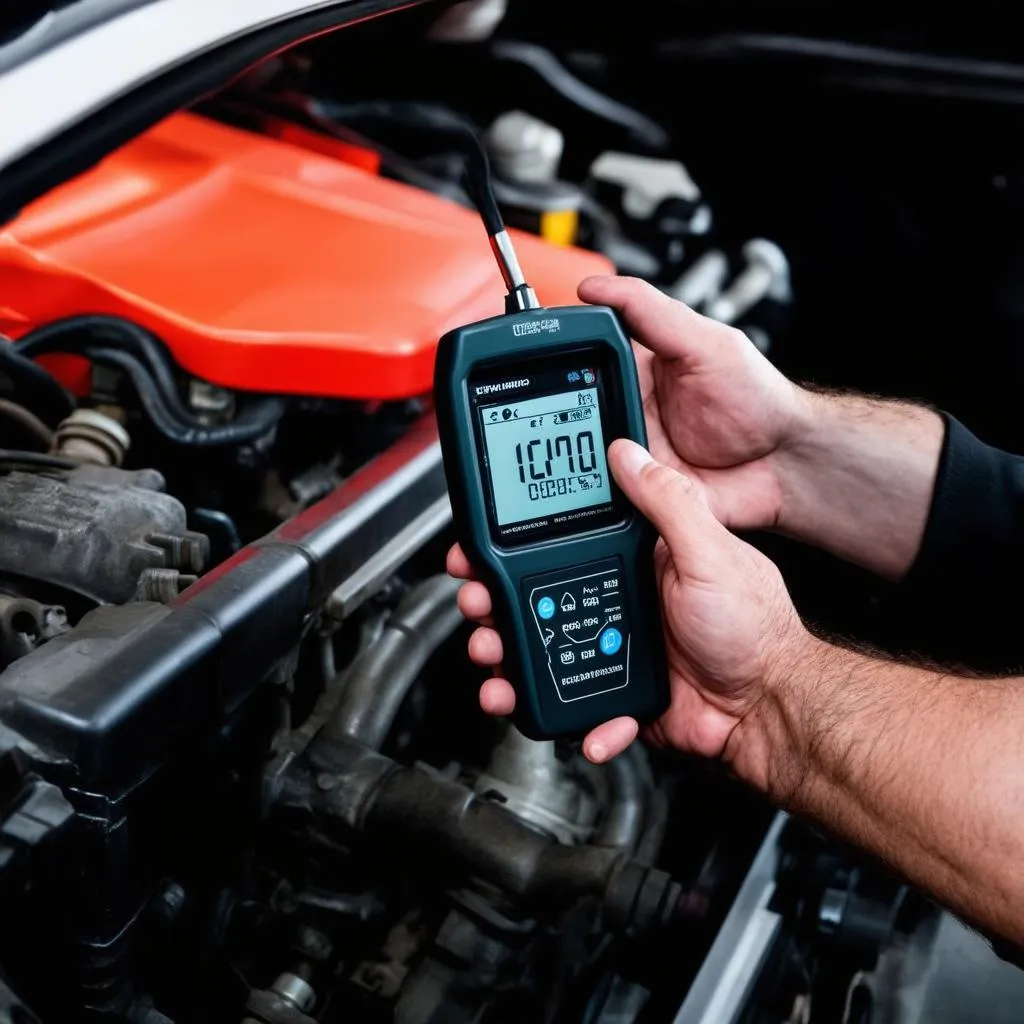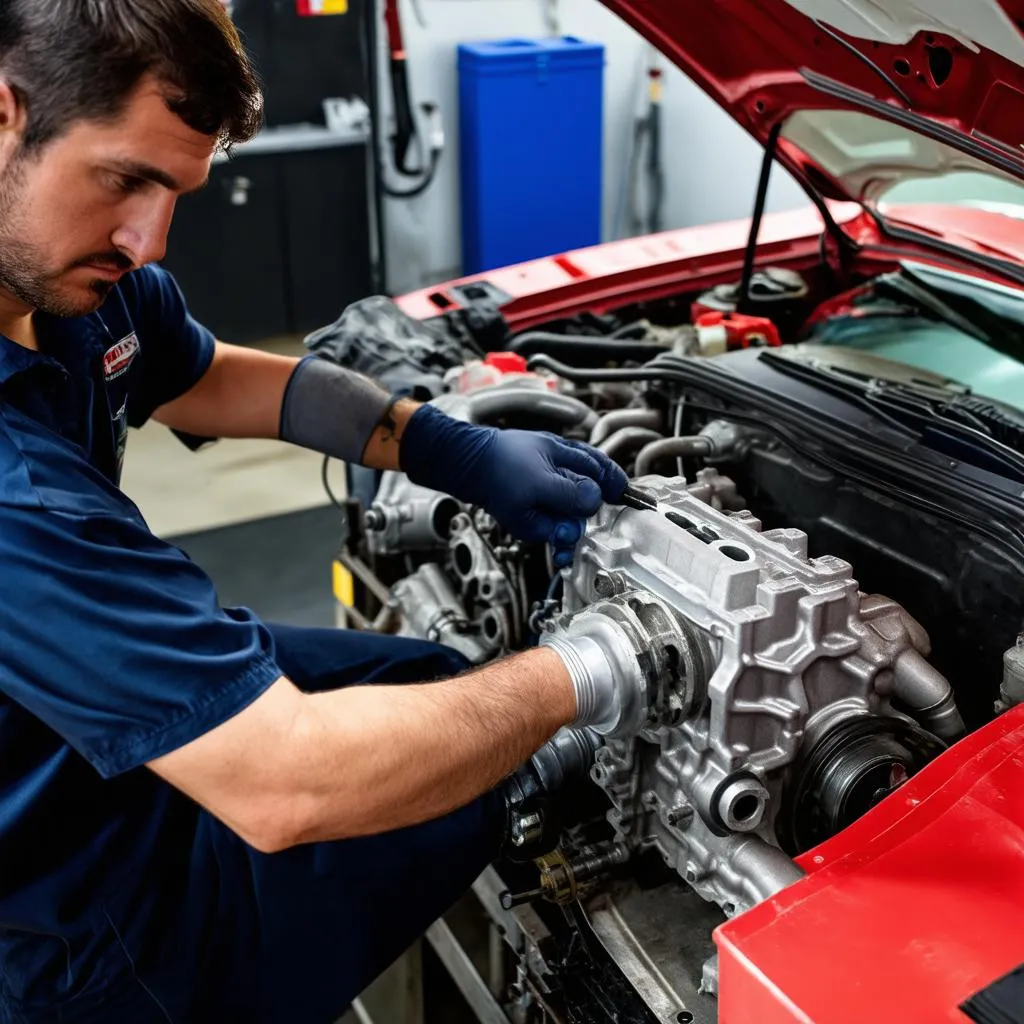“A car is a complex machine, and like any machine, it can break down.” This proverb rings especially true when it comes to transmissions. A transmission problem can be a major inconvenience, leaving you stranded on the side of the road or facing costly repairs.
But what if you could catch a transmission issue early? That’s where OBD, or On-Board Diagnostics, comes in. The question is: Does Obd Show Transmission Issues?
Understanding the Power of OBD
OBD is a computer system built into most modern cars, designed to monitor various aspects of the vehicle’s performance.
Think of it as a health check for your car!
This system can help identify potential problems, allowing you to get them fixed before they lead to major breakdowns.
The Role of OBD in Transmission Diagnostics
But, does OBD show transmission issues? The answer is yes, but it’s not always straightforward. OBD can detect problems within the transmission system itself and report them as codes, but there are limitations. It’s not a comprehensive diagnostic tool for every transmission problem.
Let’s break this down:
What Transmission Issues Can OBD Detect?
OBD can detect various transmission issues, including:
1. Transmission Control Module (TCM) Problems:
The TCM is the brain of your transmission, controlling its operation. If the TCM malfunctions, it can lead to various problems, such as shifting issues, lack of power, or even complete transmission failure. OBD can detect issues with the TCM itself.
For example: A common TCM problem is the loss of communication between the TCM and the engine control module (ECM). OBD can flag this with a code, alerting you to a potential issue.
2. Sensor Malfunctions:
Various sensors, such as the transmission fluid temperature sensor, input/output speed sensor, and throttle position sensor, monitor important aspects of the transmission system. OBD can identify malfunctions in these sensors.
Example: If the transmission fluid temperature sensor fails, the TCM might not receive accurate readings, leading to incorrect shifting patterns or even overheating. OBD can detect this malfunction and display a relevant code.
3. Solenoid Valve Problems:
Solenoid valves control the flow of hydraulic fluid within the transmission, enabling smooth shifting. OBD can detect issues with solenoid valves, indicating a potential problem.
Example: A stuck solenoid valve can prevent the transmission from shifting properly, resulting in slipping or rough shifting. OBD can detect this and flag it with a code.
4. Torque Converter Issues:
The torque converter is an integral part of the transmission system. OBD can sometimes detect issues with the torque converter, but this is often limited to problems with the torque converter clutch or lock-up.
What Transmission Issues OBD Cannot Detect?
While OBD is a powerful tool, it’s not a magic bullet.
It cannot detect:
1. Mechanical Problems:
OBD is primarily concerned with electrical and electronic components. It cannot detect mechanical problems within the transmission, such as worn gears, broken clutches, or damaged internal parts.
Example: If a gear breaks inside the transmission, you’ll likely experience a loud clunking noise, but the OBD system won’t detect this specific problem.
2. Fluid Contamination or Low Fluid Level:
OBD cannot detect issues related to transmission fluid, such as contamination or low levels.
Example: If the transmission fluid is contaminated with metal particles or debris, it can cause wear and tear on the internal components. However, OBD won’t be able to pinpoint this problem.
3. Intermittent Issues:
OBD is best at detecting consistent problems. If a transmission issue is intermittent, such as occasional slipping or rough shifting, it might not register as a code.
Example: If your transmission only slips occasionally, it might not trigger a code. You may need to consult a mechanic to diagnose the issue.
Beyond OBD: The Importance of Professional Diagnostics
While OBD can provide valuable insights into transmission problems, it’s essential to remember that it is not a replacement for professional diagnostics.
Think of it this way: OBD is like a doctor taking your temperature; it can help narrow down the problem, but it doesn’t tell you the entire story.
A professional mechanic can use their expertise and specialized equipment to perform a more thorough diagnosis, identify the root cause of the problem, and recommend the best course of action.
Finding Transmission Expertise
If you’re facing transmission issues, finding a mechanic with experience and knowledge in diagnosing and repairing transmissions is critical.
A specialist can:
- Use advanced diagnostic tools beyond OBD: They have specialized equipment that can access more detailed information and perform more in-depth testing.
- Identify the root cause of the problem: They can pinpoint the exact issue, even if it’s not detected by OBD.
- Recommend the appropriate repair: Based on the diagnosis, they can suggest the best repair options, ensuring that the problem is fixed correctly.
Remember, don’t rely solely on OBD codes to diagnose your transmission problems! Always seek professional assistance to ensure the issue is addressed appropriately and prevent costly complications down the line.
 obd-code-for-transmission-problem
obd-code-for-transmission-problem
Key Takeaways
- OBD can detect some transmission issues, but it’s not a comprehensive diagnostic tool.
- It’s important to understand the limitations of OBD and consult a professional for a thorough diagnosis.
- Don’t ignore transmission problems, even if OBD doesn’t show any codes.
- Seeking professional help early can prevent costly repairs and ensure your transmission remains healthy.
This article provides a comprehensive overview of the role of OBD in detecting transmission issues. If you have any questions, feel free to leave a comment below!
Need help with diagnostics or repairs? We can connect you with certified mechanics for professional assistance.
Contact us today via Whatsapp: +84767531508
 mechanic-diagnosing-transmission
mechanic-diagnosing-transmission
Read our other articles:
We’re here to help keep your car running smoothly. Happy Driving!